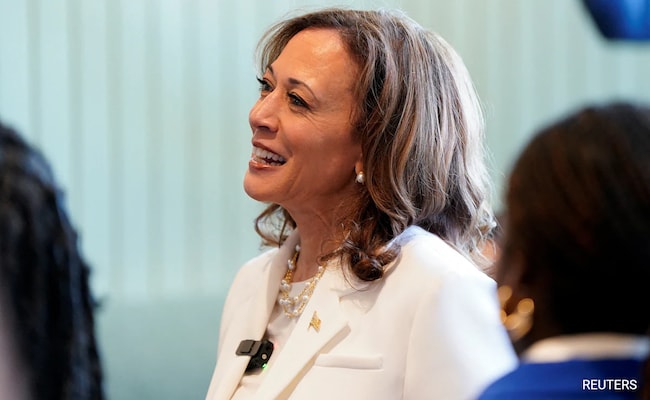Washington:
US presidential hopeful Kamala Harris appears to be taking a leaf out of rival Donald Trump’s playbook by focusing on evoking emotion, rather than explaining policy, on the campaign trail — and she’s hoping her appeal to “joy” will help her beat the Republican at his own game.
Since taking over from President Joe Biden at the top of the Democratic Party’s ticket in July, Harris has had to run her campaign in fast-forward, with just months to go before the November election.
With few exceptions she has avoided press conferences, interviews and lengthy discussions on policy. Instead, her official coronation at the Democratic National Convention focused on one pervasive theme: “joy.”
And the vibe-heavy approach appears to be working.
While Biden was lagging behind Trump, Harris has pulled back into the race, with the two candidates running neck-and-neck in six key battleground states, according to the latest polls.
The shift to evoking a primarily emotional message, experts say, is effective political strategy.
“We think we think like scientists, carefully and objectively weighing the evidence and facts before us,” said Jennifer Mercieca, a communications professor at Texas A&M University.
“But we actually think like lawyers, building a case for our preferred position.”
The appeal to so-called emotional truths — things that “feel true,” even if they are not rooted in empirical evidence — is powerful, she said.
“When speakers try to persuade based on affective truth it’s harder to hold them accountable because it’s difficult to argue against a feeling.”
Moving away from Biden
The shift from Biden’s campaign — which presented an argument based heavily on Trump being “a threat to democracy” — has been striking.
Since he dropped out, a New York Times/Siena poll “found that anger and resignation had been subsiding among voters of both parties, while joy had jumped.”
Mashail Malik, an assistant professor of government at Harvard University, said Harris’s shift can be explained by the “exhaustion” that negative emotions can cause.
“I think fear was failing to fully inspire a wider range of potential Democratic voters, many of whom are exhausted from the negativity that had so overtaken the news cycle,” she said.
“The messaging about joy seems designed to alleviate some of this exhaustion and to offer an alternative to fear.”
Moreover, she argues, it offers a way for Harris to differentiate herself from her current boss Biden.
That gets much harder when drilling down on issues, rather than atmospherics.
On US support for Israel’s war in Gaza, for example, Harris has tried to satisfy Democratic critics mostly through a shift in tone on the massive loss of civilian Palestinian life. That, however, is not likely to heal the small but significant rift in the party.
Trump’s appeals
Republican candidate Trump has been using appeals to emotions for years, with his speeches often heavy on rhetoric and light on facts — or filled with outright fictions.
This campaign, the former president has focused on what he calls an “invasion” of migrants into the United States. He calls US cities “war zones.”
“Kamala Harris will deliver crime, chaos, destruction and death,” he said in a recent campaign speech in Michigan.
In an August 27 interview with talk show host Phil McGraw, Trump repeated a frequent line from his stump speech: “If she wins, they’re going to destroy our country.”
The apocalyptic messaging might be misleading but it speaks to emotions that Trump’s supporters consider true.
Malik said Trump’s appeals to pride and resentment are “very similar to populist leaders around the world, including not only in Europe but also in Latin America and South Asia.”
“It’s a familiar story,” she said. “And it usually doesn’t end well.”
(Except for the headline, this story has not been edited by NDTV staff and is published from a syndicated feed.)
Waiting for response to load…












